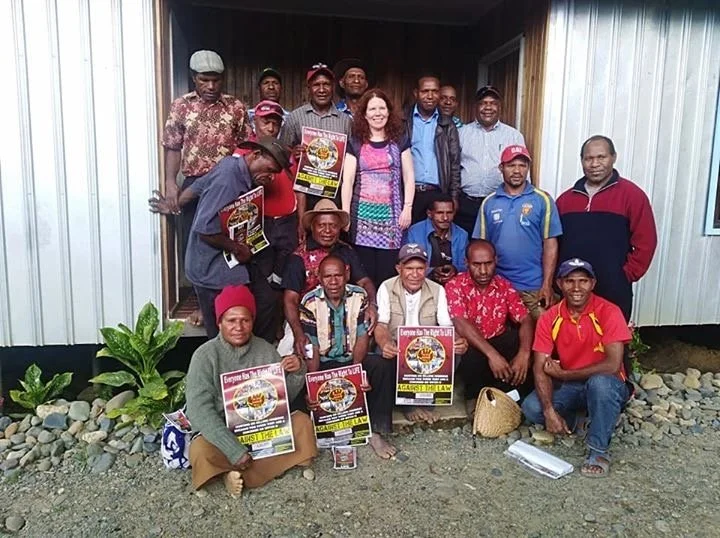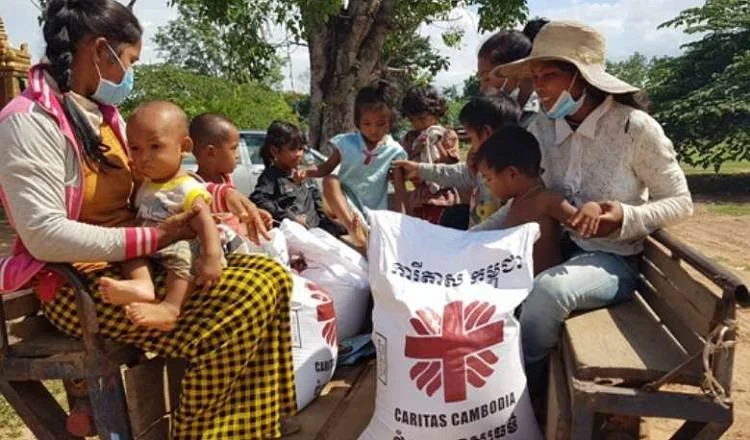Why We Should Join Forces for Women’s Rights and Religious Liberty (3/5)
Part III: Protecting Women’s Religious Freedom is Key to Stability, Resilience, and Peace
by Susan Yoshihara
Francis Dubois’ La Masacre de San Bartolome depicting Catholic mob violence against the Huguenots. Displayed in the Musée cantonal des Beaux-Arts de Lausanne.
The intractability of wars of religion and religious-inspired violence reinforce the perception that religion is mainly a reactionary, backward-looking source of instability, unrest, and violence. Yet these incidents and attitudes obscure and ignore the more enduring and extensive ways in which religion is preventing violence every day. Protecting women and religious freedom is key to stability and resilience. Protecting the conscience rights of women and men in religious organizations that work with the US government is the foundation of sustainable partnership.
In India, religion is serving to bring people together where political means fail, as seen in the unity of Christians, Muslims, and Hindus against anti-conversion laws. The Netherlands-based relief organization Cordaid found that:
“Religion can be a unifying force over conflict differences – it can bind people together and move beyond ethnic or other differences. Although religion is often seen as a source of conflict, it can bind people together too. With peaceful interpretations of religious texts, people from different religious affiliations can be brought together and move beyond conflict lines and differences.”To do this, the Cordaid highlights the importance of listening to women in conflict-settings, “Listen to their strategies to cope with patriarchy or conflict situations, often they are (without knowing) already dealing with religious actors on a daily basis to advance their agenda.”
In war-affected countries like Papua New Guinea (PNG), religion is a bulwark against violence and empowering force for women to seek and forge peace according to a 2023 report from the Global Network of Women Peacebuilders. In her research, Australia National University professor Miranda Forsyth found that culture and Christianity are sources of strength for women in PNG. Her work finds that initiatives that capitalize on the positive aspects of these two things are more likely to be adopted by leaders and the community. When working with men to get them to desist from abusing women, initiatives that emphasize the positive aspects of masculinity and gender relations as exemplified in the Bible are more effective than other approaches, she finds.
Miranda Forsyth working in Papua New Guinea (Photo Credit: DevPolicy Blog)
In Sierra Leone, Leymah Gbowee, winner of the 2011 Nobel Peace Prize, was trained as a social worker and peacemaker by religious organizations. Gbowee cites her faith as the reason she succeeded in uniting Muslim and Christian women to get men to the peace talks that ended her nation’s civil war. Likewise, it was appeals to their Muslim religious beliefs that persuaded women to collaborate with Christians on the other side of the conflict.
Here in the US, FoRB Women’s Alliance is amplifying the work of people like Hurunnessa Fariad. She is an Afghan born, NYC raised, and Virginia based mother of four girls who is part of a network working to build the skills of women as peacebuilders, protect religious freedom, hold conversations about divisive policy questions through multi-faith engagement. In a time when our society is deeply divided along ideological lines, this is serious business and central to a core WPS purpose: preventing violence by bringing women to the table.
Female aid worker from Caritas, a Catholic charity, distributes aid in Cambodia after natural diasters in 2020 (Photo Credit: Khmer Times)
The State Department and USAID recognize the outsized role that local women and religious organizations play in delivering aid; that aid is essential to building resilient and stable societies, fostering strong partnerships, and collaborating with allies. In 2006, US Secretary of State Madeline Albright surmised:
“Religion is a large part of what motivates people and shapes their views of justice and right behavior. It must be taken into account. Nor can we expect our leaders to make decisions in isolation from their religious beliefs … We must live with our beliefs and also with our differences; it does no good to deny them.”Hence, the Department of State and USAID recognize that aid depends upon partnering with local groups and American religious organizations. Just as WPS scholars have demonstrated that including women’s perspectives enhances operational and cultural understanding, so the religious perspective is essential for planners to glean. A 2023 USAID report recognized:
“Religious communities and faith-based organizations…offer perspectives that enable better understanding of community needs, hold positions of trust and leadership within societies, and can serve as effective liaisons between citizens and governments in times of conflict and humanitarian crises.”Recently this approach has been coined as Strategic Religious Engagement (SRE). Development expert Katherine Marshall notes that most aid agencies at home and abroad, and including USAID, the World Food Program, and the World Bank ignored religious organizations and religious factors in analysis in their formative years. Thus, they have to overcome organizational cultural barriers to engage them now. The SRE approach includes addressing such barriers, the results of which are still in progress. What is more, women are empowered and given leadership opportunities in religious organizations. And so it is essential that staff in implementing agencies do not take for granted the gender component.
As my first blog in this series noted, barriers include misconceptions about a false dichotomy between women’s rights and religious freedom. A 2015 United States Institute for Peace study on the contribution of women, religion, and peacebuilding found tensions between religious and secular women’s networks and lamented the “invisibility” of much peacebuilding work by religiously inspired women. That is why it is essential to protect the conscious rights of those working in faith-based organizations at home and abroad. Without strong conscience protections, US agencies cannot sustainably engage faith-based organizations at home and abroad.
SRE is meant to be mutually beneficial to international religious freedom efforts. Conversely, religious persecution undermines women’s status in society. I will address this double persecution on the basis of sex and religion in my next post.



